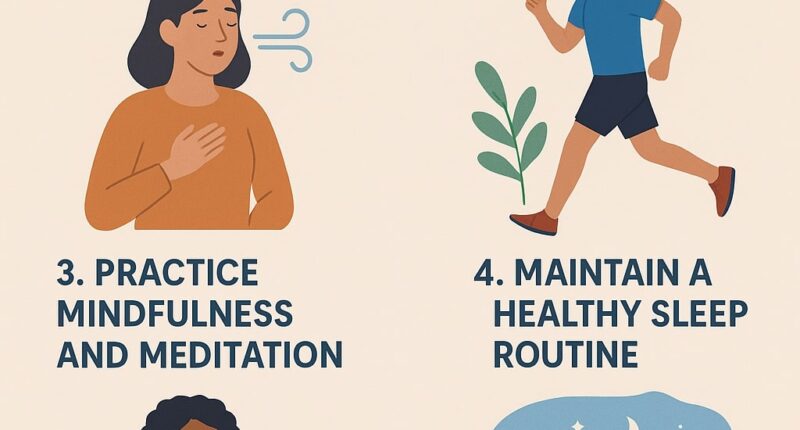Stress is a natural part of life, but when it becomes overwhelming, it can harm both mental and physical health. Fortunately, science has identified effective methods to manage and lower stress levels. In this article, we’ll explore five scientifically proven ways to reduce stress that you can apply to your daily routine.
1. Practice Deep Breathing Exercises
Deep breathing is one of the simplest yet most effective stress-reduction techniques. Studies show that slow, controlled breathing activates the parasympathetic nervous system, which calms the body and lowers cortisol levels (the stress hormone).
How to Practice Deep Breathing:
-
Inhale deeply through your nose for 4 seconds.
-
Hold your breath for 4 seconds.
-
Exhale slowly through your mouth for 6 seconds.
-
Repeat this cycle for 5–10 minutes.
This easy practice can be done anywhere—at work, at home, or before sleep—to immediately ease stress.
2. Exercise Regularly
Physical activity is a powerful stress reliever. Exercise boosts endorphins, the body’s natural mood enhancers, and reduces the production of stress hormones. According to research, even 30 minutes of moderate exercise such as walking, jogging, or cycling can significantly improve mood and reduce anxiety.
Benefits of Exercise for Stress Reduction:
-
Improves sleep quality
-
Enhances focus and energy levels
-
Reduces symptoms of depression and anxiety
Adding physical activity to your daily routine not only helps with stress but also supports long-term health.
3. Practice Mindfulness and Meditation
Mindfulness and meditation have been widely studied for their impact on stress management. Practicing mindfulness means focusing on the present moment without judgment, which helps break the cycle of overthinking and worrying.
Scientific Benefits of Mindfulness:
-
Reduces activity in the amygdala (the brain’s fear center)
-
Enhances emotional regulation
-
Improves attention and clarity
Just 10–15 minutes of mindfulness meditation each day can lead to measurable improvements in stress levels.
4. Maintain a Healthy Sleep Routine
Poor sleep is both a cause and a consequence of stress. Studies show that adults who get less than 7–9 hours of quality sleep are more likely to feel stressed, irritable, and unfocused.
Tips for Better Sleep:
-
Go to bed and wake up at consistent times
-
Avoid caffeine and heavy meals before bedtime
-
Create a relaxing bedtime ritual, such as reading or light stretching
Prioritizing sleep allows the body and mind to recover, making it easier to handle stress during the day.
5. Build Strong Social Connections
Humans are social beings, and strong relationships play a key role in reducing stress. Research suggests that talking to friends, family, or support groups can lower stress hormones and increase feelings of belonging.
Ways to Strengthen Social Connections:
-
Spend time with loved ones regularly
-
Join clubs, communities, or volunteer groups
-
Talk openly about your feelings instead of bottling them up
Supportive relationships provide comfort, perspective, and encouragement during stressful times.
Conclusion
Stress is unavoidable, but it doesn’t have to control your life. By practicing deep breathing, exercising, meditating, sleeping well, and connecting with others, you can effectively reduce stress and improve your overall well-being. Incorporating these scientifically proven strategies into your routine will help you stay calm, focused, and healthier in the long run.









